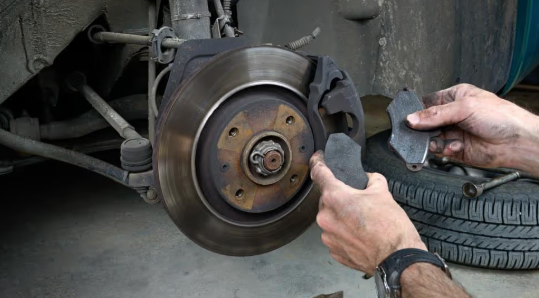Brake Problems & Repair – Frequently Asked Questions
1. Why are my brakes squeaking?
Squeaky brakes can be due to worn pads, dusty rotors, or lack of anti-squeal lubrication. Some noise is normal, but persistent squealing needs inspection.
2. What causes grinding noises when braking?
Grinding usually means the pads are completely worn, and metal is contacting metal. Driving in this condition can damage rotors and calipers.
3. How often should I replace brake pads?
Typically every 30,000–70,000 miles, depending on driving habits, vehicle weight, and brake quality.
4. Is it safe to drive with worn brakes?
Not at all. It increases stopping distance and may lead to brake failure, putting you and others at risk.
5. How do I know when my brakes need service?
Warning signs include squealing, grinding, vibration during braking, soft pedal feel, or increased stopping distance.
6. What causes the steering wheel to shake when braking?
This is often due to warped brake rotors. The uneven surface causes pulsation or vibration during braking, especially at higher speeds.
7. Can bad brakes affect fuel efficiency?
Yes, dragging brakes from a stuck caliper can reduce MPG and cause overheating, further damaging the system.
8. How long does a brake job take?
Most brake jobs take 1–2 hours per axle, depending on whether pads, rotors, or calipers are being replaced.
9. What is brake fluid and how often should it be changed?
Brake fluid transfers pressure in the braking system. It should be replaced every 2–3 years to maintain performance and avoid moisture buildup.
10. Why does my car pull to one side when braking?
This may indicate uneven pad wear, a stuck caliper, or air in the brake lines. It should be checked immediately.
11. What does the brake warning light mean?
It could indicate low brake fluid, worn pads, or ABS problems. Don’t ignore it — get the system checked as soon as possible.
12. Can I replace brake pads myself?
Yes, if you have proper tools and knowledge. But incorrect installation can lead to brake failure — always test carefully or hire a professional.
13. What is ABS and how does it work?
ABS (Anti-lock Braking System) prevents wheels fr
